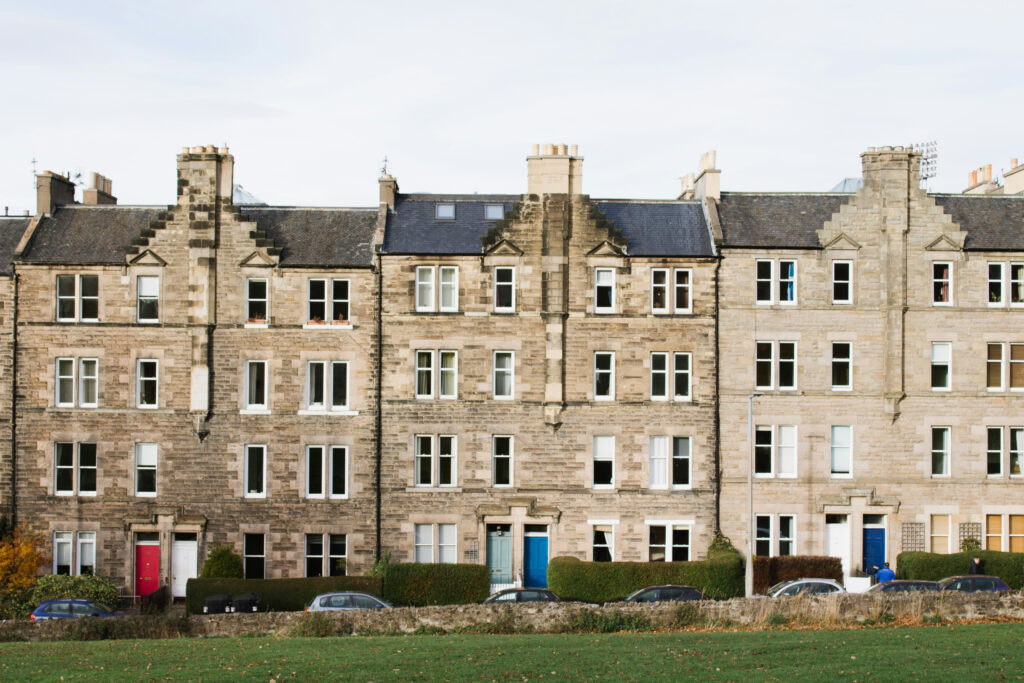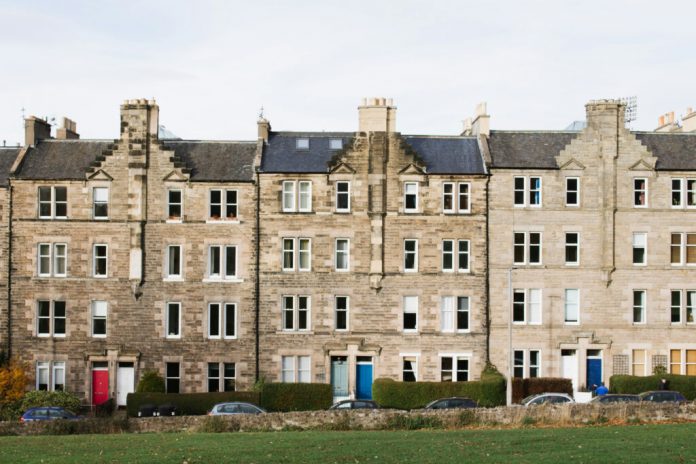THOSE looking to rent in the city during the Fringe Festival have been stunned by sky-high prices of as much as £13,000 for 30 nights, suggested as “early bird” offers.
Prices for stays in Edinburgh during the month of August have soared in recent years, with some costing more than the average yearly rent for similar properties in the capital.
Visitors and performers may be hard-pressed to find any one-bed apartments under the £2,500 mark and are therefore forced to look for shared or student accommodation in a competitive market.
This comes after the City of Edinburgh Council announced plans to introduce a visitor levy on overnight stays to the city – meaning prices are only set to rise after its launch next year.


Writer and performer Jamie Firth co-founded Boondog Theatre in 2012 and now runs Fringe Festival Support, a campaign that interviews Fringe performers and workers to get their tips for the hectic festival season.
Jame took a screenshot of the quoted price of renting a one-bed place for two guests for the month – which was set at £9,150.
Jamie shared the snap to social media, writing: “Just had a look at the first offers of Edinburgh Fringe accommodation for this year’s festival: a smallish standard one-bedroom [property] fairly close to the centre…
“Going to be a great year.”
Edlets, the local Edinburgh renting agent through which this property was listed, said that there are fewer properties available than ever, thanks to the council’s refusal of many short-term let (STL) appeals.
They also stated that those listing through the site often choose prices based on Airbnb and Booking.com, where costs are higher for overnight stays.
One listing on Airbnb quoted a staggering price of £11,000 for 28 days, with a further £2,000 “Airbnb service fee” added.
The council decided earlier this week to introduce a tourist tax in the city – the first of its kind in Scotland – meaning that hundreds of pounds may be added to the cost of staying overnight in Edinburgh next year.
The same day, councillors also rejected proposals for 18 STLs in one meeting.
Jamie Firth said today: “For performers, accommodation has always been one of the hardest parts due to the cost.
“It has rocketed year after year, but over the last five or six at incredible levels, and now the scarcity is really pronounced.
We all know that it’s not a Fringe issue: there’s a scarcity of available, affordable housing everywhere, especially in towns where tourism is a major industry.
“I can (almost) make a case for landlords taking full advantage of that: Why let a performer rent at a fair monthly rate when you could charge tourists three-fold for a few nights?
“I think everyone thought that, at some point, some authority would step in and fix that problem, but it does feel like no one really has the power to do it.
“And without all sides compromising to find a solution it’s free market capitalism, and it will eat itself: the logical conclusion is that those who can afford to visit will be watching empty stages.”
Fiona Campbell, CEO of the Association of Scotland’s Self-Caterers, said today: “The shambolic short-term let licensing scheme coupled with draconian planning decisions has led to a squeeze on the supply of available accommodation in Edinburgh.
“Visitors and performers at the Fringe will have to pay through the nose for a hotel, while the unscrupulous black market will take advantage by offering unlicensed stays.
“It is an all too predictable mess which could so easily have been avoided with a more proportionate regulatory framework.
“To cap it all off, the few remaining self-catering operators in the capital will later have to act as de-facto unpaid tax collectors as they shoulder the burden of administering a tourist tax.”
Also speaking today, Alison Rogers, director of Edlets said: “Edlets expresses deep concern for the future of the Fringe.
“While we have historically supported Fringe companies and performers by providing affordable accommodation, it’s important to note that Edlets do not control pricing – property owners do.
“Several factors contribute to rising accommodation costs in Edinburgh.
“Policies created by Edinburgh Council and the Scottish Government that target short-term lets have led to the closure of most STL’s in the city.
“Edinburgh’s designation as a control zone necessitates planning permission for short-term lets, a process where nearly all applications have been denied, with no refunds provided to owners.
“Additionally, owners now face substantial costs: secondary let licences range from £653 to £5,869 annually, while planning permission costs between £691 and £2,073.
“Many owners also incur expenses from private companies hired to handle applications, typically adding £1,000 to £4,000.
“These costs are inevitably passed on to renters during peak periods like The Fringe.
“Temporary exemptions for the festival season, costing between £250 and £600, further burden owners with additional expenses such as floor plans, safety certificates, and insurance.
“Many owners find this process overly complex and costly, dissuading them from participating in the temporary exemption scheme.
“Properties licensed as a house in multiple occupation (HMO), which often accommodate performers, face timing challenges.
“Many HMO properties traditionally see students depart in May and only then can they apply for the temporary exemption.
“However, delays in approval from Edinburgh Council, often granted too late in the season, result in missed opportunities as performers typically secure accommodation in the first quarter of the year.
“Current inflated rental prices in Edinburgh are a direct result of the city council’s decision to ignore industry advice and impose strict regulation on the Edinburgh short-term rental market.
“Combined with the substantial reduction in the number of rental units available due to regulation, these factors pose a significant threat to the future of the Edinburgh Fringe.”
Council leader Jane Meagher said today: “We have the world’s best and largest collection of arts festivals, of which we are immensely proud.
“It is in part due to their growing popularity over the last decade that we are experiencing increasing demand for accommodation in the month of August.
“Market rates affect tourist accommodation during August, as they do Edinburgh’s property prices and rents all year round.
“As is usually the case when demand is high, this means prices go up and over the last decade, prices have therefore steadily been increasing.
“This is not a new or unusual phenomenon.
“Central areas will tend to command higher accommodation prices, but with Edinburgh being such a compact capital city, it’s incredibly well connected and welcoming.
“There are varied accommodation options in our amazing communities which are well worth exploring.
“While the council has no direct influence over market rates, we are pleased to see new hotels open all the time which is expanding the accommodation options Edinburgh has to offer.
“I continue to firmly believe that everyone benefits from Edinburgh’s thriving visitor economy, but it has to be managed and sustainable.
“Our short term let controls have been an important step in the right direction.
“Our new regulations have been in place for over a year and early signs are promising that they are helping to keep visitor accommodation safe and well managed in Edinburgh.
“We’ve always said that it is important to monitor their impact and so we recently asked businesses and visitors how they’ve found the changes.
“We’re currently considering all of the feedback we received and will report back to the regulatory committee in due course.
“There is a fundamental need to balance the needs of our visitors with those of our residents who live here year-round and that idea is at the heart of our work on this issue.”
Airbnb has been contacted for comment.

